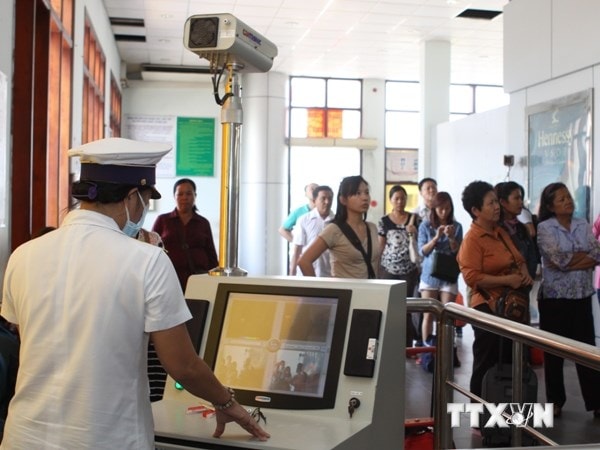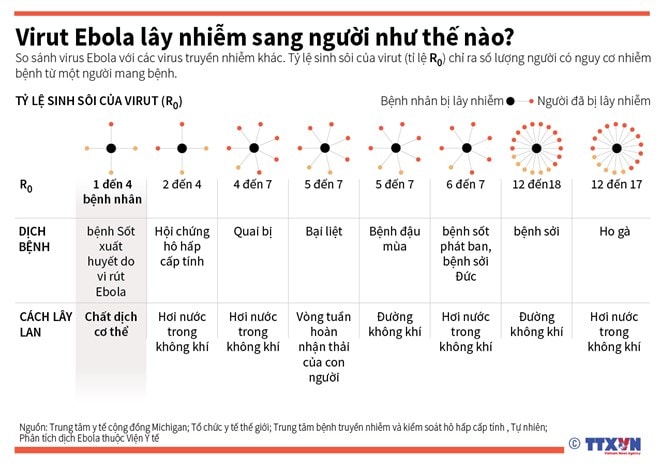Ministry of Health requires close monitoring of people entering from Africa
The Ministry of Health has just sent an urgent dispatch to the Chairmen of the People's Committees of provinces and cities regarding strengthening the prevention of Ebola virus disease as the epidemic situation continues to increase and become more complicated.
 |
| Checking passengers' body temperature at the border gate. Source: VNA |
According to the World Health Organization, as of October 14, there were 8,471 cases of the disease (4,076 deaths) and 426 health workers infected with Ebola (241 deaths).
In particular, in the past three weeks, the number of new cases and deaths has nearly doubled compared to the previous period. Ebola has now spread to countries outside of Africa.
In the US and Spain, each country has one case of a health worker contracting the disease from a patient coming from an epidemic country.
To strengthen the prevention of Ebola virus disease and continue to implement the Prime Minister's Official Dispatch No. 1392/CD-TTg dated August 9, 2014, the Ministry of Health requests the Chairman of the People's Committee of the province or city to direct the Department of Health to closely monitor people entering from African epidemic countries according to scenario 1 (when no cases have been recorded); be ready to respond to scenario 2 (when cases of the disease appear).
When detecting suspected cases of Ebola virus disease, localities must fully and correctly apply monitoring and handling procedures according to the Ministry of Health's Ebola virus disease surveillance guidelines.
Medical facilities need to strengthen hospital infection prevention and control while continuing to closely monitor the health of people entering the country from Ebola-affected countries residing in the province or city within 21 days.
 |
The Ministry of Health also requires medical facilities to fully equip medical staff with personal protective measures to avoid spreading the disease to medical staff and other patients in the hospital; strengthen anti-epidemic teams, mobile emergency teams, be ready to perform tasks when necessary and organize regular anti-epidemic activities according to regulations.
In addition, the above units need to fully prepare equipment, vehicles, medicines, chemicals, and quarantine areas to be able to immediately deploy disease prevention measures when the first case is detected.
According to Vietnam+






